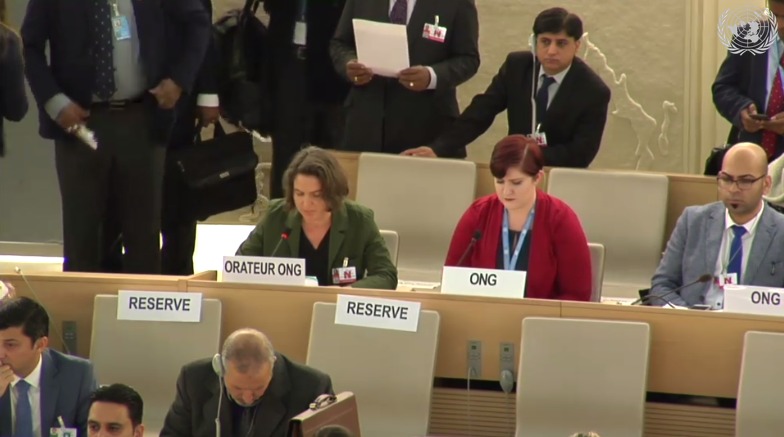On Monday 25 June, at the 38th session of the United Nations Human Rights Council, ADHRB’s Legal Fellow Bridget Quitter delivered an oral intervention during the Item 3 Clustered Interactive Dialogue with the Special Rapporteur on Independence of Judges and Lawyers. In her intervention, Quitter discussed the lack of an independent judicial council in Bahrain and called attention to the broader lack of independence in Bahrain’s judiciary. Click here for a PDF of her intervention or continue reading for the text.
Mr. President,
ADHRB welcomes the report of the Special Rapporteur, and wishes to bring to the Council’s attention the lack of an independent judicial council in Bahrain and the negative effects this has had on the justice system.
The 2002 Constitution established a Supreme Judicial Council; however, it is far from independent. Your report stresses that judicial councils are to function as independent bodies, to avoid the excessive concentration of powers or the perception of corporatism. In Bahrain, however, the head of the Supreme Judicial Council is also the President of the Court of Cassation, Bahrain’s highest court, and all members of the Council are judges.
Additionally, the council has no authority over the Office of Public Prosecution, which remains under the control of the Ministry of Interior, headed by a member of the Al Khalifa ruling family. Such external political interference is unacceptable, particularly considering that the public prosecutor also sits on the Council.
The nepotism and concentration of power at the Council is reflected in the judiciary in general. Many of the high-ranking judges in Bahrain are either members of the ruling family or non-native Bahrainis with 2-year renewable contracts. To secure renewal of these contracts, judges may consider it necessary to rule in accordance with the interests of the Government.
Furthermore, judges are appointed directly by the king from nominations made by the Ministry of Justice and Islamic Affairs, headed by another member of the ruling family.
With these facts in mind, what are your recommendations for States like Bahrain, where the Judicial Council itself is unbalanced?
Thank you.





